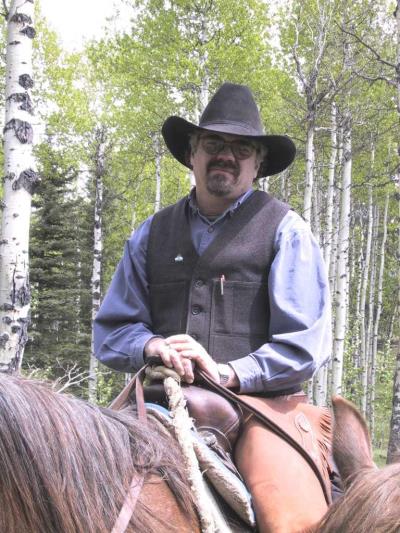
Mark Boyce (biological science) is a world leader in wildlife ecology and conservation biology. His illustrious career has taken him around the world, from the US to New Zealand and India to Canada. Presently, he holds the Alberta Conservation Association (ACA) Chair in Fisheries and Wildlife-the longest-running position of its kind in the Department of Biological Sciences.
At its core, Boyce's work is based on the premise that humans can coexist with wildlife and that it makes our lives better. His cross-disciplinary outlook spans from fundamental science to policymaking on a global scale. In the world of research, Boyce has written extensively on topics from population biology to ecological modeling, and his publications have been cited more than 14,000 times. He has served as editor of numerous journals, including Ecology, PLoS One, and editor in chief of the Journal of Wildlife Management.
Despite his notable contribution to research, Boyce finds most rewarding the knowledge that "the research we're doing actually shapes policy and management". Boyce has provided expert testimony before the United States Congress on three occasions: on conservation of the Northern Spotted Owl, on wolf recovery in Yellowstone National Park, and on the need for a science mandate for the U.S. National Park Service.
His work with spotted owls resulted in a reform of forest management in the U.S. Pacific Northwest, redirecting $18 billion from the unsustainable old-growth timber industry to local economies and conservation priorities. His contributions to the integration of wolves from Alberta into Yellowstone National Park and central Idaho resulted in the species' removal from endangered species protection in the U.S. in 2012.
In Canada, he has provided legal testimony on conservation of the Greater Sage-Grouse. Following his efforts, Environment Canada issued an Emergency Protective Order, forcing the hand of the provincial government that refused to take action to protect the species. Also as a result of his research and role on the Grizzly Bear Recovery Team, the grizzly bear was listed as a threatened species in Alberta in 2010 by the Minister of Sustainable Resource Development.
Boyce's ability to translate research extends past academia and government to industry and the general public. He writes a popular column in the monthly Alberta Outdoorsmen magazine in which he explains ecological research to a broad audience. He also uses innovative methods to engage the wider public. Recently, he convinced the Alberta government to make a trial run using an App for iPhone or Android smartphone to record daily observations by moose hunters in the field. This citizen-science method promises save millions of dollars in monitoring costs so that these revenues can be better invested in conservation programs.
Boyce's continues to draw passion for his work from the environment around him: "Living in Alberta makes for abundant exciting wildlife experiences. There are few things more exciting than being a few metres away from a bugling bull elk or encountering a female grizzly bear with cubs on a trail." Through ongoing work, he continues his commitment to furthering best management practices in Alberta, Canada, and globally, balancing the needs of industrial development, humans, and species at risk.